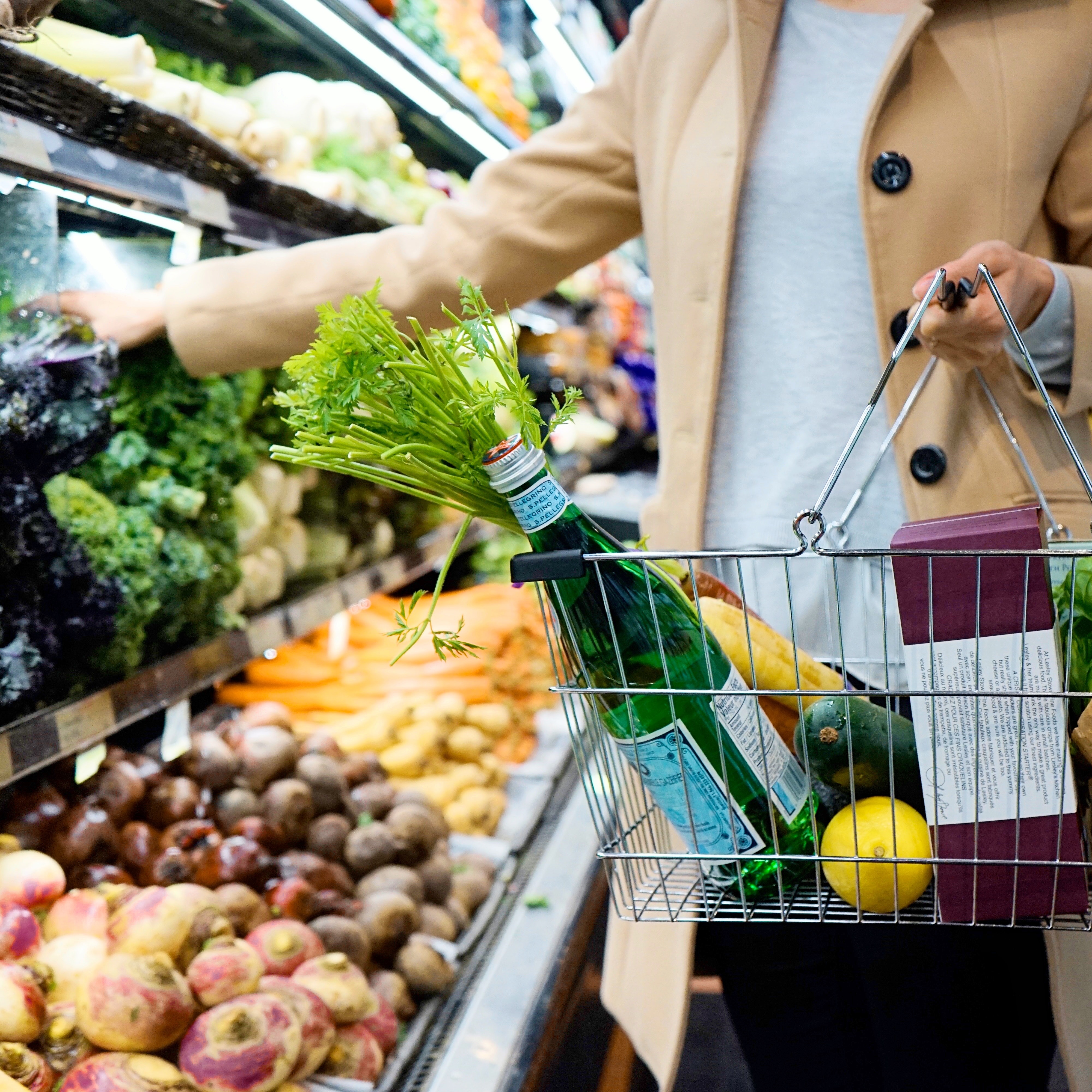How carrots can make you buy grapes instead of biscuits
Scientists from Maastricht University (UM) have shown for the first time that the distraction effect – also known as the decoy effect – works not only when shoppers are choosing between variants of one product, but also when the choice is between entirely different products. Supermarkets can use this knowledge to help their customers make healthier choices. In the Maastricht study, for example, carrots encouraged participants to choose grapes instead of chocolate biscuits. Shop owners can also use the decoy effect in this way to prevent food waste. The findings are published in the scientific journal PLOS ONE.
Decoy effect
Marketeers make extensive use of the decoy effect, which is a well-known aspect of consumer psychology. A familiar example is the cup of coffee at the filling station which somehow you nearly always drink accompanied by a cookie for only 50 cents extra, when you really only came in for the coffee. Or the giant bucket of popcorn you find yourself clutching at the cinema, while a small or medium would have been more than enough. The Maastricht researchers wanted to know whether they could also use this phenomenon to help consumers make healthier choices. So they conducted an online experiment with 237 participants, in which one group was presented with two options and the other group with three options. ‘It turned out that the first group, who had a choice between healthy grapes and unhealthy chocolate biscuits, opted equally as often for the healthy product as for the unhealthy product,’ UM researcher Gitta van den Enden explains. ‘The second group was presented with a third option, which we had clearly made less attractive than the grapes based on product characteristics such as taste assessment and quality of ingredients. Adding this decoy, in this case carrots, ensured that in the second group no fewer than 73 percent opted for the healthy grapes.’
Supermarkets
Supermarkets can apply the results of the Maastricht study in practice to enable their customers to make healthier choices. Moreover, the results show that the decoy effect not only works to get customers to choose a healthy product over an unhealthy product, but it also appears to be effective in guiding behaviour if people can only choose between unhealthy products such as sweets. Store owners can therefore also use the effect to prevent food waste, for example, or to sell products with the highest profit margin. ‘By adding a decoy you can steer customers towards the desired product,’ Van den Enden concludes. ‘It’s important that you display the three products in the right way. Previous research has shown that the decoy effect works particularly well if the decoy and the product to be sold are easy to compare. This means that the effect won’t occur if the three products are on a large shelf among other merchandise. It’s best for supermarket owners to put the products alongside the decoy on a separate shelf or, for example, at the checkout.’

Also read
-
Higher air pollution increases the likelihood of people voting for opposition parties rather than ruling parties. This is the major finding of research by Nico Pestel, a scientist at the Research Centre for Education & Labour Market (ROA) at the Maastricht School of Business and Economics.
-
Healthy nutrition, sufficient exercise and cultural and talent development are important for the growth of every child. These key elements will be an integral part of every school day, thanks to the concept of Healthy Primary School of the Future. Maastricht University was one of the initiators of...
-
Scientists at the biomedical MERLN Institute of Maastricht University and the Maastricht University Medical Center have succeeded in growing an embryo structure of human identical twins purely from stem cells, without using an egg or sperm cell. Thanks to this culture, scientists are now seeing for...

